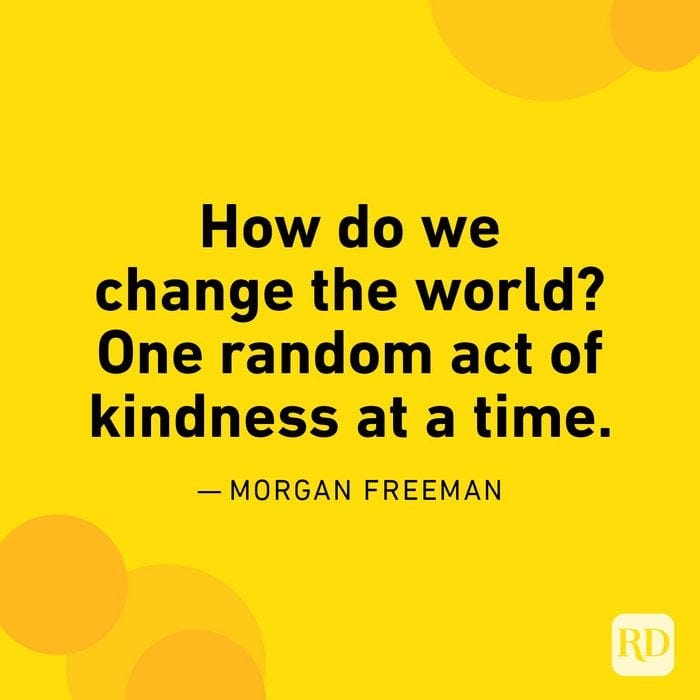I’m not in the best situation financially. I recently completed a Ph.D. and job prospects are looking grim. Contrary to popular belief, young scientists are rarely paid a living wage, and most science work is done fo’ free (“Good luck trying to become a professor if you don’t have family money”; an issue that I extensively outline in my free e-book book “Evolution in Space and Time”). But everything is relative; richness is a mindset rather than a quantitative calibration of social status or resources.
I try my best to achieve at minimum one random act of kindness (RAK) per day. It isn’t an easy rule to follow, and it often puts myself and the recipient in an unusual and awkward social situation — largely because humans feel obligated to return the gesture of kindness in an evolutionary process known as reciprocal altruism, hence why it so rarely ensues in modern civilization.
However, this was a particularly rewarding RAK. I am living with my wife in Poland at the moment, and as I began my trek home after a brief writing stint at the local watering hole, I was ambushed by a rando on the street. He started talking to me in Polish, so I took out my Airpods and replied my usual, “Przepraszam, I don’t speak Polish” (nor will I ever learn because look at the spelling of a simple “sorry”).
He looked rough around the edges and was missing a few teeth. My limbic system immediately pegged him as homeless but non-threatening, as his general demeanor, or “energy” as my hippy wife would say, felt pleasing enough.
To my surprise, he spoke back to me in decent English, “Sorry friend, could you spare a few złoty for something to eat?” Again, my brain went into overdrive as I made my usual lie, “No, sorry, I don’t have any złoty in my wallet” — assuming he was just going to buy drugs or vodka with the money.
Again, to my surprise, he asked if we could walk to the closest Zabka (Polish equivalent of a 7/11) and buy him some food. I hesitated for a moment, reminding myself of my dwindling and forlorn bottom line. But then again, I am doing comparatively better than this man by the looks of it, so I accepted his reasonable request.
As we walked, he told me a bit about his situation and his story: “You know, I used to live in London “— Ah-ha, explains his decent English. “Me and a few others now live in the woods outside the city. We don’t have much food left.” He comes in close and gives me a cheeky wink, “And you know, no money, no wife” he chuckles. I rolled my eyes and replied, “Don’t I know it, I have a Polish wife,” lamenting over the incessant pressure from my Polish wife to get a real job (sciencing doesn’t count as a real job). He chuckles back and gives me a nod of understanding Eastern Europe women.
We walk into Zabka and are immediately met with a thousand derisive stares from the working staff. I tell him, “buy whatever you like.” As he walks around the shop, the staff keeps a watchful eye over his every move. He picks up a small bottle of milk, a handful of potatoes, and a package of butter as he looks at me and nods.
Again, I am thoroughly surprised. I say to him, “You know, you can get more. Do you need bread?” He replies in a grateful and humbled tone, “No, we have bread. Thank you.” As we head to the check-out counter, he mutters a few words in Polish and the check-out lady gives a nervous and disapproving chortle. The total came out to be 18 złoty or a little over 4$ USD.
As we walk out of the store, he repeats several times, “Thank you, thank you, my friend.” I reach out my hand for a shake and say, “No, thank you” — for he taught me more in this brief occurrence than the four dollars worth of food I bought him. Through and through, it was a wholly unfair trade.
Nearly a century’s worth of psychological research has shown that those who regularly do kind things for others are richly compensated in mental well-being. This likely boils down to our history as egalitarian hunter-gatherers, where social tribes commonly selected for members who exhibited prosocial behaviors. Modernity, in contrast, often selects for and celebrates trait characteristics of a psychopath: ruthlessness, a lack of social conscience, an ego, and a drive to succeed regardless.
Moreover, research has consistently demonstrated that poorer people tend to give away more money than the uber-rich, because power and economic social status often diminish all varieties of empathy to assuage the psychological stress that is typically accompanied by extreme wealth disparities. So the next time you are ambushed by a rando who looks potentially homeless, don’t assume the worst, and empathize with their situation. They are likely a good and humble person deep down, who is only looking for a good hearty meal for him and his friends.
Evolutionary biology has taught me one invaluable lesson: that the environment plays a far bigger role than genes in the adaptation and manifestation of certain behavioral traits. Ergo, there is no such thing as bad people, only bad environments that bring out the worst in people. People are inherently good because millions of years of evolution have selected for good people.
Commit yourself to doing one random act of kindness a day because people are worth it, and you will be richly compensated. I guarantee it.
(As already published on Medium)
Want to know more about evolution? Check out my free E-Book published on Researchgate, “Evolution in Space and Time: The Second Synthesis of Ecology, Evolutionary Biology, and the Philosophy of Biology”.

